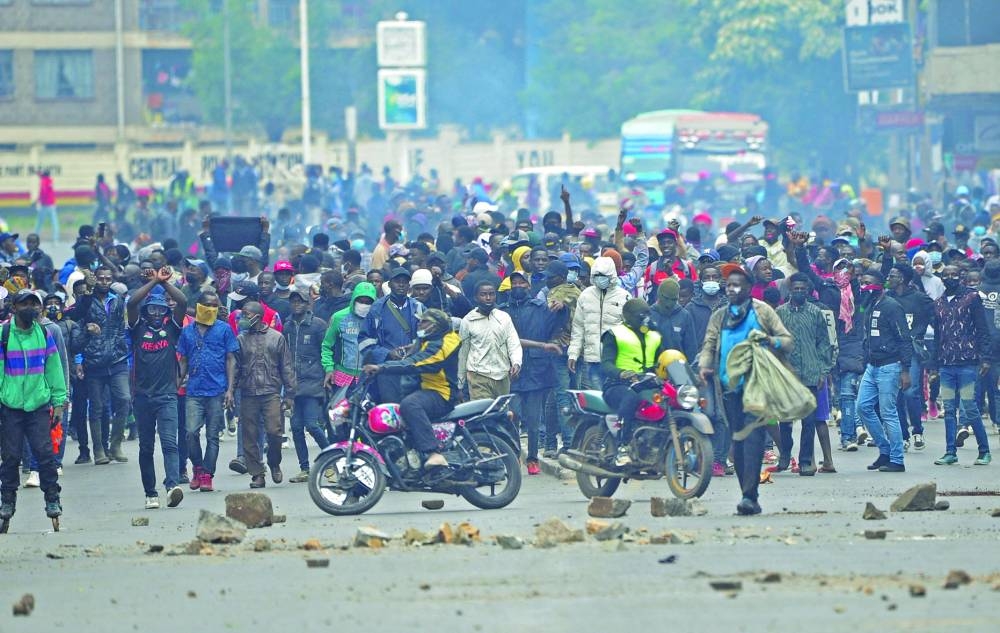Police fired tear gas and water cannon against dozens of demonstrators in Kenya’s capital Nairobi on Tuesday, as scattered rallies across the country called for embattled President William Ruto to step down.
Activists led by young Gen-Z Kenyans launched peaceful rallies a month ago against deeply unpopular tax hikes but they descended into deadly violence, prompting Ruto to drop the planned increases.
Although street protests have eased since dozens of people were killed and parliament stormed in late June, demonstrators are still demanding the president’s resignation, with Tuesday’s rallies using the “RutoMustGo” hashtag.
Heavily-armed police were deployed in Nairobi’s central business district (CBD) — the epicentre of previous protests — while young people armed with clubs stood guard outside their businesses, an AFP journalist said.
Officers fired tear gas and water cannon on small crowds gathering in the CBD, with demonstrators criticising the “excessive force” deployed by the police.
“Police have used excessive force in dealing with the peaceful demonstrators,” Kinuthia Ndung’u told AFP.
“We have a lot of young people who are now nursing injuries”, the 27-year-old protester said.
“We are peaceful, we did not have any (weapons), but they are shooting at us, they are giving us tear gas,” said another protester, Francis Mumo.
“Can’t we come to the streets and march? Because it is our right to demonstrate. They are supposed to protect us”, the 32-year-old added.
Local media reported seeing a body on the ground as scuffles broke out between police and protesters in Nairobi’s Kitengela neighbourhood.
Demonstrations also took place in the opposition stronghold of Kisumu, where shops hurriedly closed before midday as protesters marched, and in the president’s Rift Valley bastion of Eldoret.
In the coastal city of Mombasa, dozens of protesters waved green branches and flags, clashing briefly with officers before marching into the city centre.
“We are protesting peacefully”, they shouted, holding banners reading: “Justice for Gen-Zs” and “stop killing protesters”.
In addition to withdrawing the finance bill containing the proposed tax hikes, Ruto dismissed almost his entire cabinet last week and has promised more changes as he grapples with the most serious crisis of his near two-year presidency.
But he has failed to defuse the simmering discontent felt by many Kenyans over mismanagement of public resources.
“We keep telling Ruto must go (but) he’s not going anywhere,” protester Maureen Nyaga, 33, told AFP in Nairobi.
“I am on the streets today because...we are waiting for our demands to be met.” The state-backed Kenya National Commission on Human Rights said on Tuesday that 50 people have lost their lives and 413 injured since the start of the rallies on June 18.
Rights groups have accused police of using disproportionate force against the protesters.
Some of the previous rallies witnessed scenes of mayhem with widespread looting and property damage, with demonstrators claiming their peaceful action was hijacked by “goons”.
Ruto has sought dialogue with the demonstrators, but the movement has spiralled into a broader campaign against his administration, with protesters calling for action against corruption and justice for victims of alleged police brutality.

Protesters gather during an anti-government demonstration, following nationwide deadly riots over tax hikes and a controversial
now-withdrawn finance bill, in Nairobi, on Tuesday.
